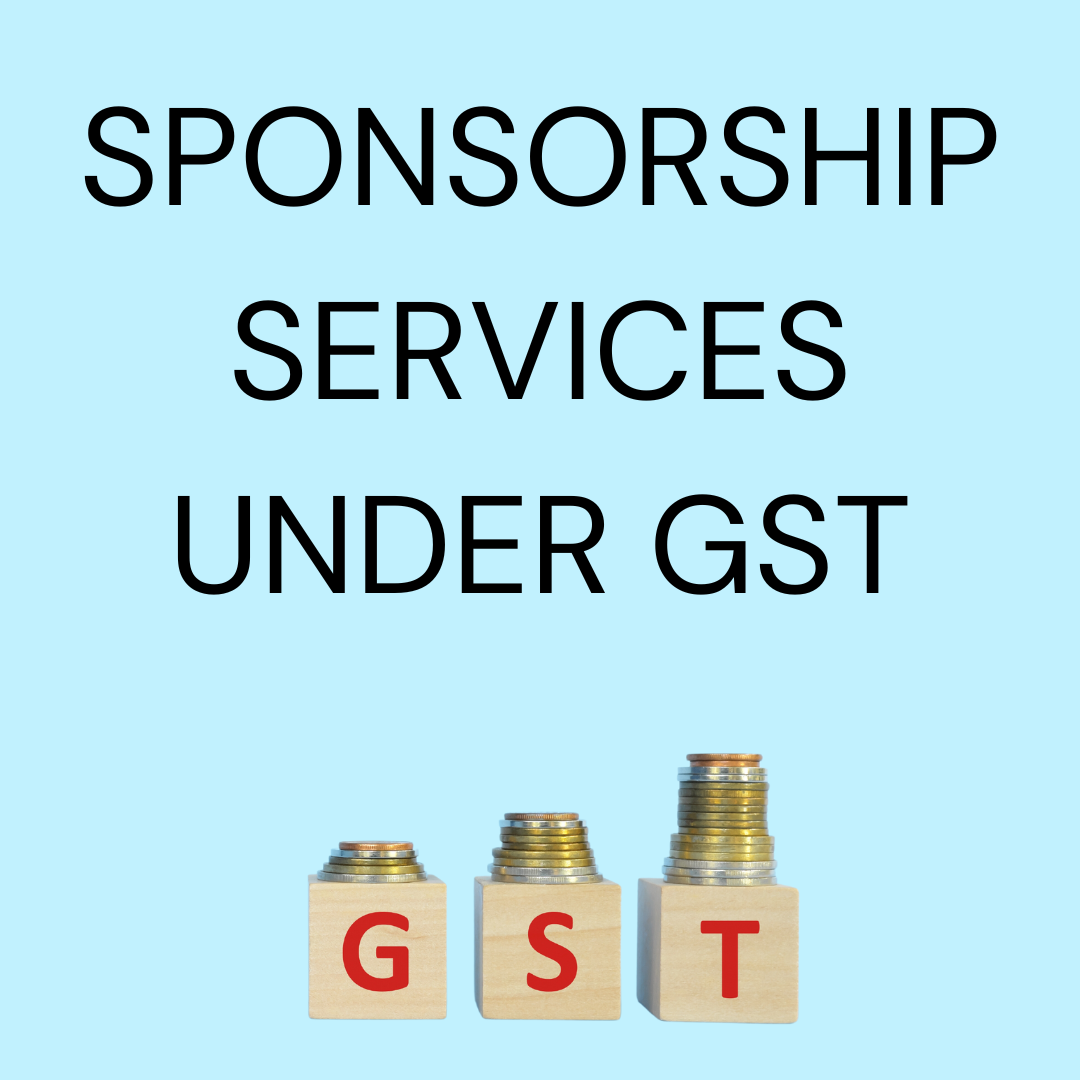Sponsorship services involve providing financial assistance, products, or services to support individuals, events, activities, or organizations. The sponsor, who offers such support, plays a crucial role in these arrangements. It’s important to note that sponsorship services do not include financial or other support in the form of donations or gifts, as service providers are not obligated to provide anything in return.
Treatment of Sponsorship Services under GST
In the realm of Goods and Services Tax (GST), the liability to pay GST typically falls on the supplier of goods or services. However, in certain cases, the recipient becomes liable for payment, following the reverse charge mechanism (RCM) outlined in Section 9(3) of the GST Act and Central Tax Notification No. 12/2017. Sponsorship services provided to body corporates or partnership firms in the taxable territory fall under this mechanism. On the other hand, sponsorship services offered to other individuals or entities are subject to the forward charge mechanism (FCM), making the service provider responsible for GST payment.
Understanding Body Corporate
The term “body corporate” or “corporation” encompasses companies incorporated outside India, excluding co-operative societies registered under any Co-operative Act. It includes other non-company entities such as societies. While every company falls under the category of body corporate, not all body corporates are classified as companies. The term body corporate is broader in scope than that of a company.
Consideration of LLP as a Partnership Firm
Limited Liability Partnership (LLP) registered under the provisions of the Limited Liability Partnership Act, 2008 is also considered a partnership firm.
Place of Supply for Sponsorship Services
According to Section 12(7) of the GST Act, the place of supply for services related to the organization of events (cultural, sporting, scientific, educational, or entertainment) such as conferences, fairs, or similar occasions depends on the following factors:
- If the recipient is a registered person, the place of supply is the location of the recipient.
- If the recipient is not registered under GST, the place of supply is the actual location where the event takes place.
- For events held outside India, the place of supply is the location of the recipient.
In cases where an event is conducted in multiple states or union territories and a consolidated amount is charged for the services provided, the place of supply is determined based on the value of services separately collected or determined in the contract, proportionate to each state or union territory involved.
Availing Input Tax Credit on RCM Tax Paid for Sponsorship Services
Input tax credit on the tax paid under RCM (at the rate of 18%) for sponsorship services can be availed as per Section 16 of the CGST Act, 2017, if the services are obtained for business purposes or taxable supplies. However, it’s essential to note that if sponsorship services are obtained from an unregistered supplier, the recipient must raise a self-invoice as mandated by Section 31(3)(f) of the CGST Act, 2017. Input tax credit can only be claimed based on this invoice, subject to payment of tax.
GST Rate for Sponsorship Services
Sponsorship services, including brand promotion services, fall under the taxable category at the GST rate of 18% (HSN code 998397).
Tax Payment under RCM for Sponsorship Services
In the case of supply of services under Section 13(2), if an invoice is issued within the prescribed time, the time of supply is determined by the earlier of the date of issue of the invoice or the date of receipt. Typically, if the invoice is issued on or before 30 days, the time of supply is based on the date of issue of the invoice or the date of receipt, whichever comes first. However, if the invoice is not issued within the prescribed 30 days, the time of supply is determined by the earlier of the date of provision of service or the date of receipt.
Recipient’s Registration Requirement
In general, every supplier needs to be registered under GST. However, small businesses with an aggregate turnover below INR 20 lakh (INR 10 lakh for businesses in notified states) are exempt from registration. On the other hand, a person required to pay tax under RCM must obtain compulsory GST registration. If the recipient of sponsorship services is unregistered, they must register within 30 days of receiving the services.
Understanding the treatment of sponsorship services under GST is essential for sponsors and recipients alike to ensure compliance with tax regulations and meet their tax obligations effectively. Stay informed and adhere to the guidelines to navigate the world of sponsorship services within the GST framework
GET IN TOUCH



